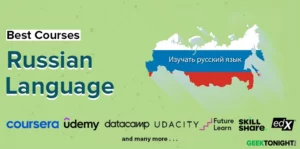Do you think learning Kubernetes can advance your career? It is the right time to take your career ahead with this demanding skill. Kubernetes is a popular open-source container orchestration platform and was designed by Google. It automates container management tasks and makes it easier to roll out changes, monitor and scale your applications.
Kubernetes’ surge in popularity has led to a rise in security issues surrounding the Kubernetes environment and infrastructure. Consequently, there is a growing need for skilled professionals to secure Kubernetes environments. Get the chance to upskill by enrolling in one of the Best Kubernetes Courses.
Why should you learn Kubernetes?
For 2023, Kubernetes will move in a direction that promises exciting developments. Cloud-native application development, serverless computing, and integrating artificial intelligence and machine learning into Kubernetes are all expected to rise. Hence, it will provide new opportunities to maximize Kubernetes’ potential in various ways.
According to the US Bureau of Labor Statistics, job growth for Kubernetes in the US is expected to increase by 28% from 2019 to 2029. The job growth rate is much faster than the average of 4% for all occupations.
As per Glassdoor, the average salary for a Kubernetes Engineer in the United States is $127,858/ year. Overall, Kubernetes’ future is bright and can help you stand out in your organization. We recommend you check out our list of Best 9 Kubernetes Courses and Certifications.
Table of Content
- 1 Best Kubernete Courses, Certification, Tutorials, Training, Classes Online
- 1.1 Kubernetes for the Absolute Beginners – Hands-on [Udemy]
- 1.2 Docker and Kubernetes: The Complete Guide [Udemy]
- 1.3 Kubernetes for Developers: Core Concepts [Pluralsight]
- 1.4 Getting Started with Google Kubernetes Engine [Coursera]
- 1.5 Architecting with Google Kubernetes Engine Specialization [Coursera]
- 1.6 Kubernetes Certified Application Developer (CKAD) with Tests [Udemy]
- 1.7 Learn DevOps: The Complete Kubernetes Course [Udemy]
- 1.8 Managing Apps on Kubernetes with Istio [Pluralsight]
- 1.9 Managing Kubernetes Controllers and Deployments [Pluralsight]
- 2 FAQ
Our product recommendations are unbiased and based on an independent review process. We may receive a commission for links to recommended partners. See our advertiser disclosure for more information.
Best Kubernete Courses, Certification, Tutorials, Training, Classes Online
Kubernetes for the Absolute Beginners – Hands-on [Udemy]
The Kubernetes Course makes it easier to learn the Open-Source System, Kubernetes in 10 simple steps. You will grasp each concept fully and develop your services based on Kubernetes configuration files in your browser for different use cases.
Course Instructor
Mumshad Mannambeth is the creator and instructor of the Udemy Kubernetes Course. He specializes in Cloud Native Computing, Automation, and DevOps. He built KodeKloud – a hands-on learning platform and is a Certified Kubernetes Training Partner.
Pros & Cons
Pros
- Exceptional content
- Clear and concise
- Useful information
Cons
- Fast explanation pace
Key Highlights & Learning Objectives
- The Udemy Kubernetes Online Course includes 11 sections and 63 video lectures to learn Kubernetes simply and for fun.
- Become familiar with Kubernetes fundamental concepts
- Create and maintain Kubernetes Configuration Files using YAML.
- Install and configure Kubernetes Clusters on local systems, Kubernetes on Google Cloud Platform, and Kubernetes applications
- Learn how to setup replica sets, services, and deployments on Kubernetes
- Enjoy lifetime access to 37 coding exercises, 18 articles, and a certificate of completion.
Who is it for?
The Kubernetes Online Training Course is for absolute beginners who know nothing about Kubernetes. System administrators, Project Managers, and Developers can enroll to deploy their own applications on the Kubernetes Platform. After the course, you will be prepared to apply Kubernetes skills to succeed in your DevOps career.
Rating: 4.6/5
Students Enrolled: 310,759
Duration: 6 hours
Docker and Kubernetes: The Complete Guide [Udemy]
Are you tired of looking for courses to study application deployment? This Docker and Kubernetes course is the ultimate course. As part of the course, the latest technologies will be taught – Docker, which allows apps to run in containers, and Kubernetes, which coordinates the different containers to run smoothly.
Course Instructor
Stephen Grider will teach the Udemy Docker and Kubernetes Course. He writes complex JavaScripts and simplifies complex topics. Stephen trains engineers in their early software development careers. His goal is to share his knowledge with other software engineers on Udemy.
Pros & Cons
Pros
- In-depth and easy to follow
- Structured and intuitive course
- Clear explanation
Cons
- Old and Need updates
Key Highlights & Learning Objectives
- The Udemy Kubernetes Training Course offers a complete guide to understanding Docker with Kubernetes with 19 sections and 318 video lectures.
- Learn Docker from scratch and deploy your applications on Kubernetes.
- Able to create custom images for your applications
- Learn how to inspect and debug running containers with the Docker CLI.
- Understand how Docker works behind the scenes and what a container is
- Build a CI + CD pipeline from scratch with Github, Travis CI, and AWS.
- Understand the purpose and theory of Kubernetes and deploy a production-ready Kubernetes cluster to Google Cloud.
- Receive full access to 65 articles, 110 articles, and a certificate of completion.
Who is it for?
The Online Kubernetes with Docker Course is for software engineers who want to deploy and manage apps. However, you must have a basic understanding of terminal and command line usage. Once you’ve finished the Kubernetes Class, you can build, test, and deploy applications with Kubernetes. If you are not familiar with Docker at all, we would recommend you to review the Best Docker Courses.
Rating: 4.6/5
Students Enrolled: 319,450
Duration: 22 hours
Kubernetes for Developers: Core Concepts [Pluralsight]
The Kubernetes Training Course will help you understand how to fit application containers into Kubernetes. In the first few lessons, you will learn about Kubernetes and how to run apps locally on your machine with Kubernetes using Kubectl. Also, it will teach you how to use the different resources that Kubernetes provides. In the Kubernetes online class, you will learn about containers and how to deploy them in pods.
Course Instructor
Dan Wahlin, instructor of this Pluralsight Kubernetes Class, is the founder of Wahlin Consulting. His company offers consulting and training services in JavaScript, Angular, Node.js, C#, ASP.NET MVC, Web API, Docker, and Kubernetes. He is a Google GDE (and former Microsoft MVP and Regional Director), Docker Captain, and speaks at conferences and user groups around the world.
Pros & Cons
Pros
- Short lessons
- Expert-led course
Cons
- Need more practical examples and assignments
Key Highlights & Learning Objectives
- The Pluralsight Kubernetes Course is divided into 8 chapters that discuss core Kubernetes concepts to get your containers running.
- Provides a developer-focused look at key Kubernetes resources, their benefits, and how to get started using them.
- Learn how to get Kubernetes running up on your machine and interact using Kubectl.
- Explore the role of storage, ConfigMaps, and secrets.
- Delve into troubleshooting pods.
- Understand the role Kubernetes can play in your development workflow and how to manage your containers.
Who is it for?
This Kubernetes tutorial is for anyone who wants to learn about Kubernetes and how it works for application deployment. It will help you understand Kubernetes’ core concepts and use them effectively. By the end of the course, you will be able to understand the role Kubernetes plays in your development workflow.
Rating: 4.7/5
Duration: 5 hours
Getting Started with Google Kubernetes Engine [Coursera]
The Kubernetes Certificate Course will teach you how to interact with GKE. It will introduce you to various Google Cloud Services that help you create your own cloud solution. With the Kubernetes Course, you will discover how to use Cloud Build to create a container and store it in the Container Registry. In addition, you will learn how to deploy a Kubernetes cluster using GKE, deploy Pods to a GKE cluster, and view and manage Kubernetes objects.
Course Instructor
Google Cloud Training Center offers this Google Kubernetes Certificate Course to train students. Also, it is part of multiple programs that help you build specific expertise.
What you’ll learn
The Coursera Kubernete Certification is divided into 4 modules, including:
- Introduction to Google Cloud: This module will introduce you to Google Cloud’s resources and how they are organized into regions and zones.
- Containers and Kubernetes: In this module, the instructor will discuss software containers and container management solutions such as Kubernetes.
- Kubernetes Architecture: In this module, you’ll learn the components of a Kubernetes cluster and how they work together.
- Introduction to Kubernetes Workloads: The module will focus on the components used to manage Kubernetes workloads.
Pros & Cons
Pros
- Lots of hands-on experience
- Deep and useful content
- Very insightful
Cons
- Requires updated updates
- Have to subscribe to the certificate.
Key Highlights & Learning Objectives
- Examine the differences between Google Cloud compute platforms and Kubernetes components and architecture
- Learn to register container images in the Container Registry
- Give an explanation of how pod networking works in Google Kubernetes Engine.
- Utilize the Google Cloud console and Gcloud/kubectl commands to manage Google Kubernetes Engine clusters.
- Full access to 13 quizzes, 3 assessments, 40+ videos and career certificate
Who is it for?
Software engineers and developers can enroll in the Google Kubernetes Engine Course with basic Kubernetes knowledge. When you complete the training, you will gain a foundational understanding of Kubernetes and develop job-relevant skills.
Rating: 4.5/5
Students Enrolled: 131,834
Duration: 10 hours
Architecting with Google Kubernetes Engine Specialization [Coursera]
The Kubernetes Certification will teach you about Google Kubernetes Engine, or GKE. It will also implement solutions, such as scheduling, load balancing, and monitoring workloads. It also discusses service discovery, managing access control and security, and storage for these applications. The Kubernetes Specialization will teach you to incorporate Google Cloud Platform products and configure them within QWiklabs. Through the modules, you will gain hands-on experience with the concepts discussed.
Course Instructor
Google Cloud offers Google Kubernetes Certification for organizations to empower their employees. Instructors will provide complete Google Cloud training to students and help them succeed in their careers.
What you’ll learn
The Coursera Kubernetes Engine Specialization is divided into 4 courses, namely:
- Google Cloud Fundamentals: The course will help you identify the purpose and value of interacting with Google Cloud products and services.
- Architecture with GKE (Foundational): In this course, you will learn about the differences between Google Cloud Platforms.
- Architecture with GKE (Workloads): The course will teach you how to create and use deployments and use load balancers to expose services to clients.
- GKE Architecture (Production): During the course, you will be able to identify roles for GKE and access them as needed.
Pros & Cons
Pros
- Get hands-on projects
- Expert-led course
- Gain in-demand skills
Cons
- Experience with Linux operating systems
Key Highlights & Learning Objectives
- Learn about Google Cloud core concepts and identify the purpose of using its products and services.
- Understand Google Cloud storage options such as Cloud Storage, Cloud SQL, Firestore, and Cloud BigTable.
- Learn about architecting with Google Kubernetes Engine and using Google Cloud Managed Storage Services with GKE.
- Build foundational knowledge of CI/CD and how to use them with GKE.
- Become a Google Cloud Certified Professional by earning a Coursera career certificate.
Who is it for?
The Google Kubernetes Engine Specialization is for software engineers with command-line tools and Linux operating system environments and systems operations experience. As soon as you complete this Specialization, you will receive a Specialization Certificate to share with potential employers and your professional network.
Rating: 4.7/5
Students Enrolled: 72,942
Duration: 1 months, 10 hours/week
Kubernetes Certified Application Developer (CKAD) with Tests [Udemy]
The Kubernetes Online Certification will help you advance your career to another level. It focuses on teaching you how to deploy applications on Kubernetes effectively. The Kubernetes Certificate Program is designed to help you gain foundational knowledge of designing and deploying cloud-native applications on a Kubernetes cluster.
Course Instructor
The Kubernetes Certified Application Developer (CKAD) Course will be taught by Mumshad Mannamebth. He has experience as an IT Solutions Architect and an expert in Cloud Native Computing, Automation, and DevOps.
Pros & Cons
Pros
- Very clear and fantastic course
- Hands-on lab exercises and session
- Great course for CKAD preparations.
Cons
- Unclear pronunciations
Key Highlights & Learning Objectives
- The Udemy Kubernetes Certificate Training consists of 13 sections and 184 lectures to practice for the Kubernetes Certification.
- Participate in community service and gain real-world experience.
- Developing Cloud First Applications using Kubernetes and deploying them on a Kubernetes cluster.
- Protect your Kubernetes cluster with network policies and secrets
- Configure persistent volumes and schedule jobs in Kubernetes
- Learn to use logs to troubleshoot deployed applications
- Free lifetime access to 74 articles, 6 downloadable resources, and 15 hours of on-demand video lectures.
Who is it for?
The Kubernetes Certification Program is for System Administrators, Application Developers, and students who want to get certified professionally in Kubernetes. Once you’ve completed lectures and coding exercises, you’ll apply your knowledge to assignments. You will be given the challenge to solve using Kubernetes skills.
Rating: 4.7/5
Students Enrolled: 185,208
Duration: 15 hours
Learn DevOps: The Complete Kubernetes Course [Udemy]
The Online Kubernetes Tutorial will explain how to deploy, use, and maintain Kubernetes applications. It is the most effective way to become a professional DevOps expert. The instructor will introduce you to how to build apps in containers using Docker and deploy them on a Kubernetes cluster.
Course Instructor
Edward Viaene will teach you the Udemy Kubernetes Online Tutorial who has over 10 years experience as a System Administrator and full-stack developer. He has worked with many organizations and startups as a Big Data Specialist, DevOps, and Cloud Expert.
Pros & Cons
Pros
- Informative and excellent session
Cons
- Outdated Ubuntu version in use
Key Highlights & Learning Objectives
- Install and configure Kubernetes (on your laptop/desktop or in a production-grade cluster on AWS).
- Use Docker Client (with Kubernetes), kubeadm, kops, or Minikube to setup your cluster
- Learn how to run stateless and stateful applications on Kubernetes
- Build an understanding of Health Checks, Secrets, ConfigMaps, and placement strategies and deploy a Cassandra cluster on Kubernetes
- Ability to scale applications using metrics and write Helm charts
- Automatically build and deploy your own Helm Charts using Jenkins
- Set up Kuberless to run Kubernetes serverless functions and Istio to deploy Kubernetes as a service mesh.
- Gain access to 2 practice tests, 1 article, and 14 hours of on-demand video.
Who is it for?
It is one of the Best Kubernetes Courses Online specially designed for students who want to learn more about AWS. You must know Linux/Docker/ AWS. You will be able to build, deploy, use, and maintain Kubernetes after completing the course.
Rating: 4.5/5
Students Enrolled: 123,078
Duration: 14 hours
Managing Apps on Kubernetes with Istio [Pluralsight]
The Kubernetes Course Online will discuss Istio – a service mesh that works as a component to take control of network communication between your application services. Here you will learn how to manage traffic routing, security, and telemetry without requiring any configuration.
Course Instructor
The Pluralsight Kubernetes with Istio Course will be taught by Elton Stoneman, a 10-time Microsoft MVP, author, trainer, and speaker. With experience architecting and delivering complex solutions for industry leaders, he worked with Microsoft technologies.
Pros & Cons
Pros
- Short lessons
Cons
- Basic Kubernetes understanding
Key Highlights & Learning Objectives
- Understand how Istio can help manage, secure, and observe communication between components.
- Discover how Docker and Kubernetes are used to build the service mesh architecture.
- Learn how to secure and authorize services with TLS.
- Discover the Telemetry Flow through Istio and Istio integration with the logging stack.
- Able to deploy Istio in production and migrate live applications as well.
Who is it for?
Those who want to learn how to manage apps using Istio with Kubernetes can take the Intermediate Kubernetes Online Class. By the end of the course, you will learn how to deploy Istio and run existing and old applications in the service mesh.
Rating: 4.5/5
Duration: 4 hours
Managing Kubernetes Controllers and Deployments [Pluralsight]
Take your skills to the next level with the Kubernetes Training Course. It will help you to build Kubernetes admin skills for the Kubernetes Administrator Certification. It will introduce you to the basics of managing Kubernetes Controllers and Deployments.
Course Instructor
Anthony Nocentino is the Author of this Pluralsight Kubernetes Class. He is currently a Principal Field Solution Architect at Pure Storage. He is an expert on Microsoft Data Platform MVP and Linux.
Pros & Cons
Pros
- Short and concise course
Cons
- Need more explanation
Key Highlights & Learning Objectives
- Learn how to create Deployments, DaemonSets, StatefulSets, Jobs, and CronJobs with Kubernetes.
- Discover how to deploy and maintain your container-based application in your Kubernetes cluster.
- Get access to demos to gain hands-on experience and implement the knowledge.
- Learn to create and Demonsets controller operations
- Understand how to work with ParallelJobs and Scheduling Tasks.
Who is it for?
The Best Kubernetes Course is for intermediate learners who want to understand how to use Kubernete. So, it requires you to have experience in Kubernetes. After completing it, you will be prepared for your Certified Kubernetes Administrator (CKA) certification.
Rating: 4.4/5
Duration: 3 hours
FAQ
Is Kubernetes easy to learn?
Yes! But if you do that on your own, it is hard to learn. But there is an alternative that’s much more simple. Use some guidance. Follow an easy-to-understand course about Kubernetes.
How long does it take to learn Kubernetes?
If you add in lab time, reading, and exploring different ways to utilize Kubernetes, around 20 hours is a good enough timeframe to expect you’ll be able to start working with Kubernetes in a work environment.
Does Kubernete require coding skill?
Absolutely! Kubernetes is about developer hats. In fact, any Kubernetes application running is created from a Kubernetes Manifest, which is YAML code.
Is Kubernetes harder than Docker?
When compared to Kubernetes, Docker Swarm is easy to install, and instances are usually consistent across operating systems. Configuring a cluster in Docker Swarm is easier than configuring Kubernetes. It is easier to learn than its counterpart and works with the existing CLI.
What skills are needed for Kubernetes?
The team required to manage Kubernetes must be versed in handling the same modern application paradigms. The team’s skills should include designing self-service applications, autoscaling the infrastructure based on workload, and supporting users around the clock.
In Conclusion
By reading the review article, you will gain a better understanding of how learning Kuberentes can benefit you professionally. Each course is unique and has its own benefits for students. You can start your learning journey anytime by enrolling in the Best Kubernetes Courses. In order to deploy apps securely, IT organizations need professionals who understand Kubernetes. So, it is a great time to make yourself skilled in this demanding and rewarding technology.











